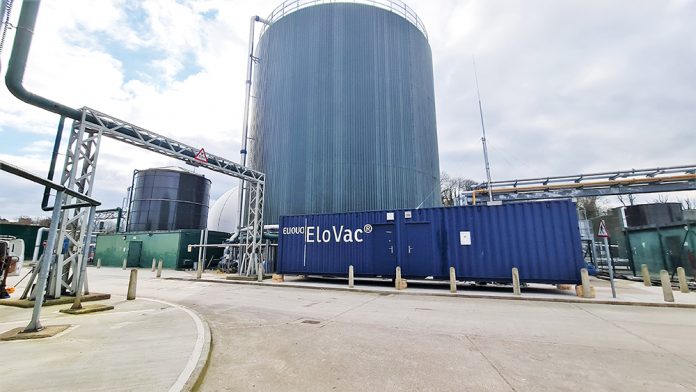Common operational problems with AAD plants are high loading and partly overloading of digesters – with the high dry solids concentration and high viscosity resulting in gas entrapment. This contributes to direct emissions being the major share of a WwTP’s carbon footprint, with methane emissions higher than the total indirect emissions from a WwTP.
Dwr Cymru Welsh Water and ELIQUO HYDROK partnered to test a new approach for addressing operational problems with AAD by the installation of an EloVac®-P Pilot Plant at Five Fords WwTW near Wrexham. The EloVac pilot scale trial ran for around 12 weeks over April-June. The main driver for the trial was to mitigate the excess foaming present in the digesters of the advanced digestion plant.
Problems caused by foam generation meant that the pilot trial had to take place under variable operating conditions. Despite the inconsistency of the digestate density, the sludge discharged from the EloVac® was consistent in quality and of high density with virtually no foam present. The EloVac®-P Pilot Plant has a capacity of up to 20 m3/hour of digested sludge and by removing entrapped gas bubbles and dissolved gas, increases digestate density, avoids or reduces the use of expensive anti-foam chemicals, increases digester capacity and improves digester mixing efficiency.
Dwr Cymru Welsh Water are a forward-looking water utility and keen to explore and capitalise on innovative new technologies which improve their service delivery to their customers. The results of the pilot EloVac®-P trial are being assessed by Dwr Cymru Welsh Water for suitability of incorporation into their process at Five Fords and other AAD sites which they operate.
For further information on EloVac®-P and any of the other Biosolids technologies offered by ELIQUO HYDROK, visit the website:
www.eliquohydrok.co.uk or contact
Neil Willoughby, neil.willoughby@eliquohydrok.co.uk



